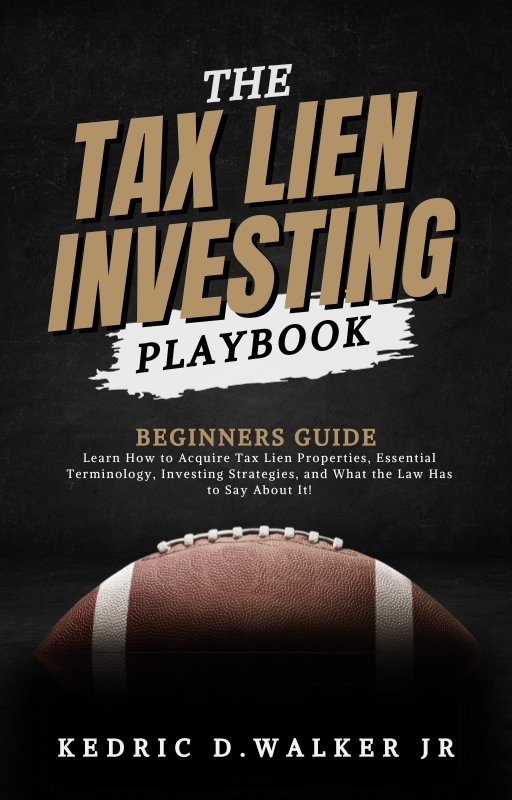All Categories
Featured
Table of Contents
If you have an interest in the tax obligation lien repossession process, you need to speak to a lawyer so you recognize and consider the dangers of this sort of investment. - tax lien investing ny
Tax lien sales are one manner in which cities and areas attempt to redeem some of the public dollars they have actually spent preserving these residential or commercial properties deserted by exclusive owners. As we'll discuss in this post,. As soon as residential or commercial property taxes are thought about overdue, city governments typically concentrate on offering notice of delinquency and trying to collect the overdue amounts from the proprietor.
This procedure typically takes years - tax lien investing arizona. If a proprietor has actually strolled away and hesitates to pay tax obligations or preserve the building, the city needs to invest tax dollars to maintain the residential or commercial property. These costsboarding up the structure, trimming thick lawn and weeds, reacting to fire and police contacts the residential property, and moreadd up

Owners that have actually fallen on tough times absolutely need every effort to maintain them out of delinquency and in their homes. But generally, if the residential or commercial property is vacant and deteriorated, we should presume the proprietor has actually picked to desert their interest in the property which they are "unwilling" to pay (though conditions earlier at the same time may have forced their hand).
Investing In Tax Lien Certificates
Take, for instance, a single-family home where the owner has actually long since left. For years the local federal government has actually had to action in and remove waste disposed in the backyard, board up the doors and windows, and react to calls regarding illegal task on the residential property. All these services cost the local government taxpayer dollars.
In numerous states, those costs can be gathered likewise as the unsettled tax obligations, however not in all. (Something that Area Progression highly supports for.) Eventually, the total debt ends up being more than what the residential or commercial property might sell for. In a tax lien sale (or tax obligation certification sale) the neighborhood federal government typically holds a public auction where the winning bidder accepts pay the most cash for the right to impose the tax lien, starting with a minimum proposal of at least the taxes possessed, plus appropriate passion, charges, and expenses.

When a federal government sells the tax obligation lien they are usually offering to a private customer the neighborhood government's authority to accumulate the financial obligation for in advance repayment of the tax obligations owed. The buyer's purchase typically consists of the ability to gain future rate of interest, in addition to recover related fees and expenses incurred by the buyer, if the homeowner pays the tax obligation debt.
This is, basically, privatization of a core federal government function: taxation. Tax lien sales are specifically poor when it pertains to vacant, abandoned, and shabby properties since they prolong the period prior to a residential or commercial property can be moved right into the hands of a new, a lot more responsible owner. Exclusive tax lien purchasers hold the financial debt, yet they do not possess the titlethe lawful right to possession of the propertyand in a lot of cases, they have no interest in obtaining it.
Tax Lien Investing Course
Taking into consideration budget plan cuts, city governments in many states have minimized internal property tax obligation collection and enforcement initiatives and looked to tax lien sales as a quick infusion of profits - investing in property tax liens (tax lien investing 101). Many areas select or are mandated by the state to offer tax liens since it contracts out collection and usually generates very needed money previously in the collection process
By transferring the city government's rate of interest in and enforcement of the tax lien to a private buyer, city governments shed a lot of their adaptability: flexibility to obtain vacant residential properties that the private market doesn't want, or to assist the owner avoid losing their residential or commercial property. With uninhabited buildings, there is a much higher chance that the exclusive buyer isn't thinking about the property itself.
Tax obligation lien sales can cause damage in traditionally disinvested areas. In a depressed housing market, less proprietors are able to redeem the quantity of the financial obligation marketed to a tax lien buyer. These areas are ripe for a various type of tax lien investorspeculative owners seeking to get properties on the cheap by foreclosing on the real estate tax lien, milking what little bit equity is left by renting out an ineffective residential property to vulnerable lessees, and after that deserting the home when they've earned back their investment.

Not all state laws offer city governments the power to interfere in this cycle. In either case, the building continues to be uninhabited and in limbo, all the while imposing substantial prices on its neighbors and taxpayers. It's reasonable that numerous city governments transform to tax obligation lien sales due to the fact that they assist fund necessary public services.
If the regional federal government instead markets the property (also known as the "tax obligation act"), instead of the tax obligation financial debt, then they are in control of what happens to the residential property and the enforcement procedure if the owner remains to not pay the building tax obligation owed. The federal government will certainly supply the proprietor a reasonable time to repay the tax financial debt, after which the government will certainly foreclose its passion in the tax lien and the proprietor's right of redemption.
From their creation, these auctions were locations for capitalists to make money with exploitation. In very early 20th-century cities, infamous "tax sharks" like Chicago's Jacob Glos and New york city's Charles Wiltsie amassed ton of money by acquiring up ratings of tax liens on property buildings, billing their owners expensive amounts to remove the lien, or waiting until the target date for negotiation passed and claiming the deed.
Learn Tax Lien Investing

Calls to abolish tax lien sales and overhaul tax misbehavior legislations have actually occasionally emerged. Usually, they have come in feedback to instances of inadequate, usually elderly homeowners who lost their homes to dishonest tax obligation purchasers over small tax financial obligations. But with a couple of exemptions, state legislatures have resisted structural reforms.
Those who have actually repaid their mortgages (primarily senior citizens or individuals that had actually inherited a household home) should also find the cash to pay home taxes. This explains why 70 percent of the homes cost tax lien sales are possessed outright. It is well hobby for states to embrace an even more humaneand more effectivesystem for building tax enforcement.
Latest Posts
Paying Back Taxes On Property
Buying Delinquent Tax Property
Homes Delinquent Tax Sale